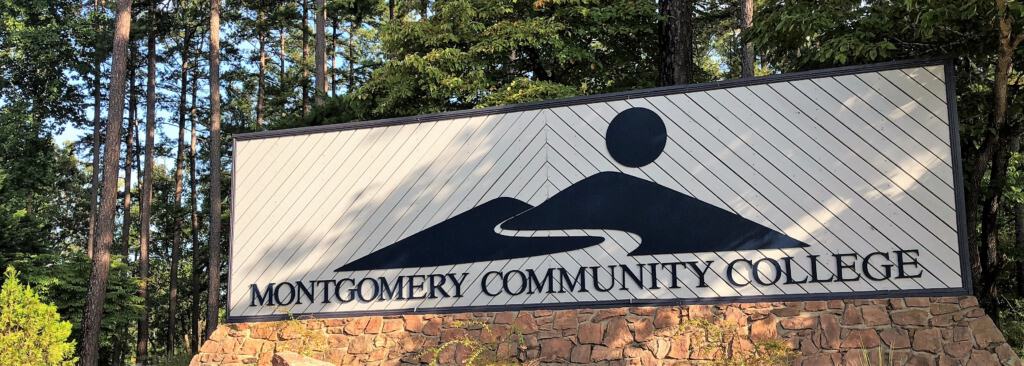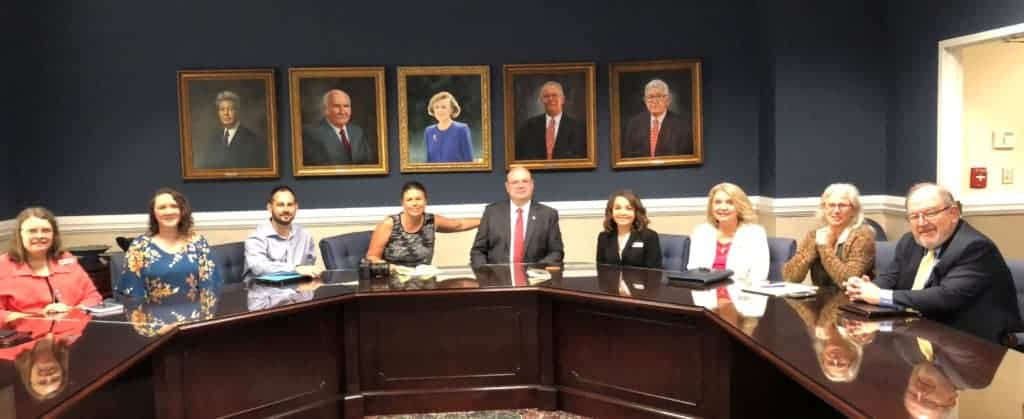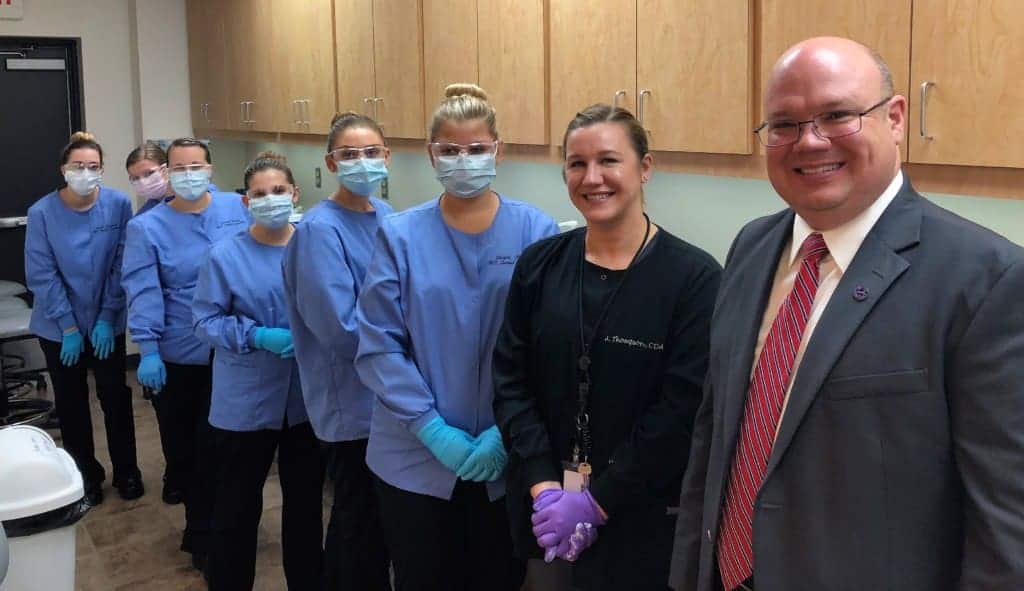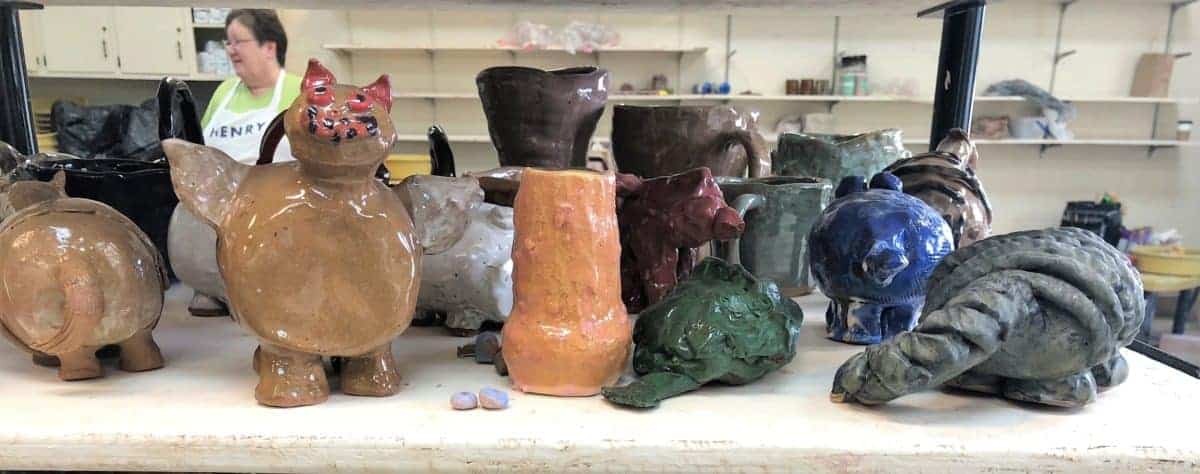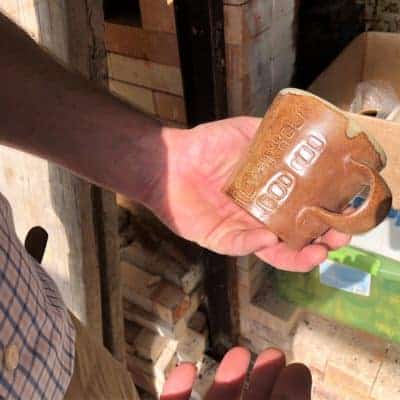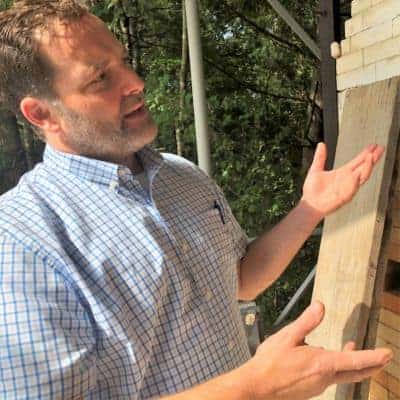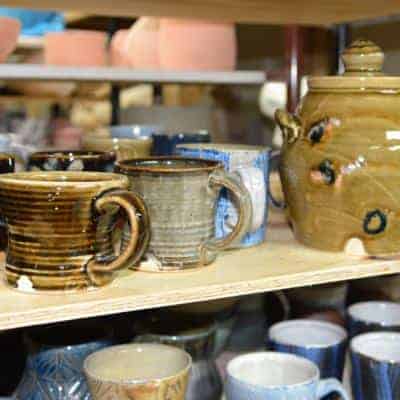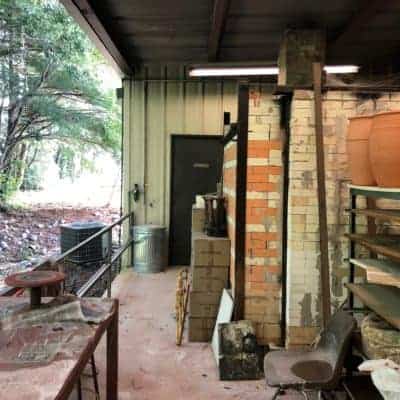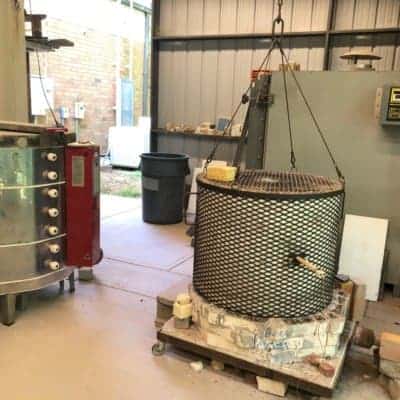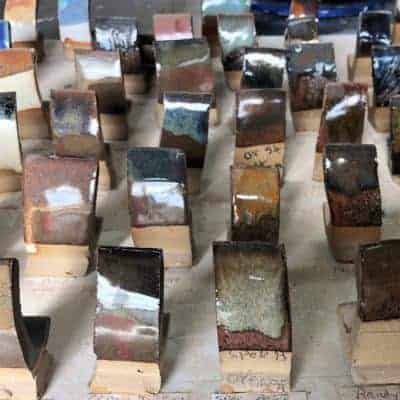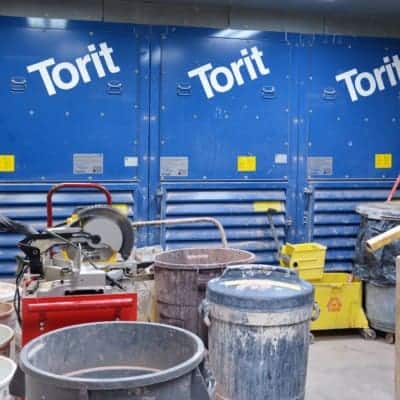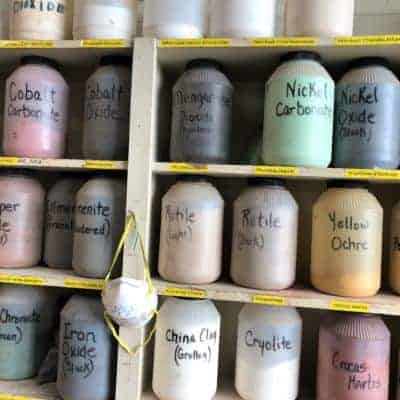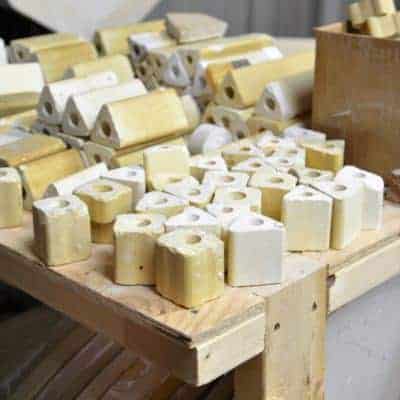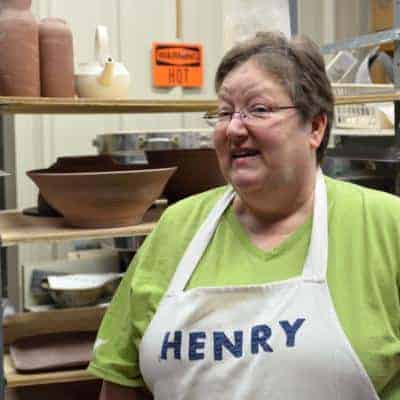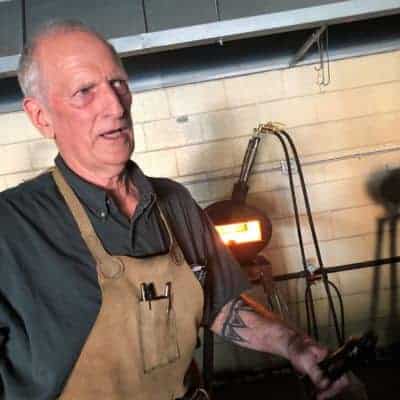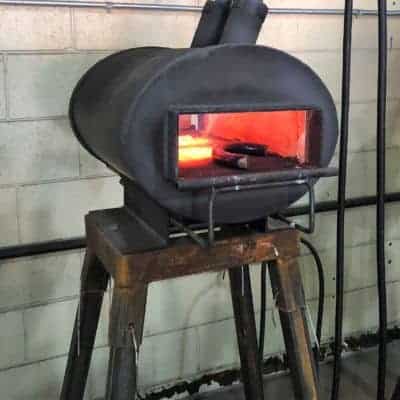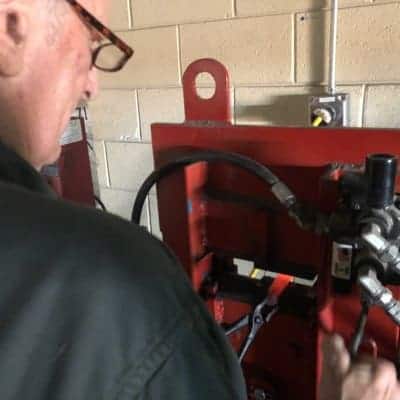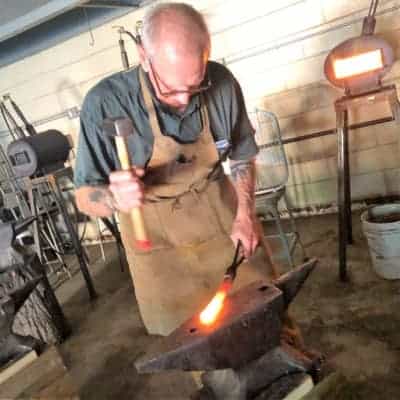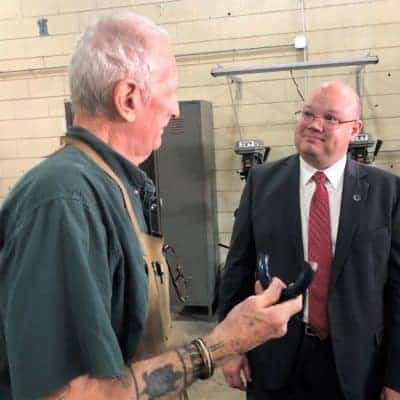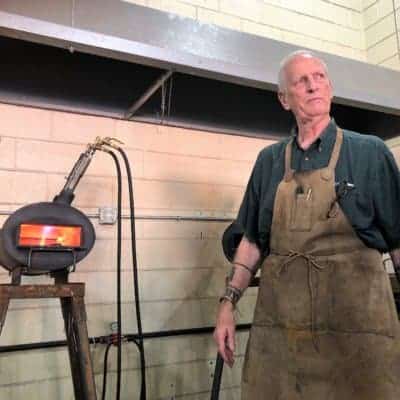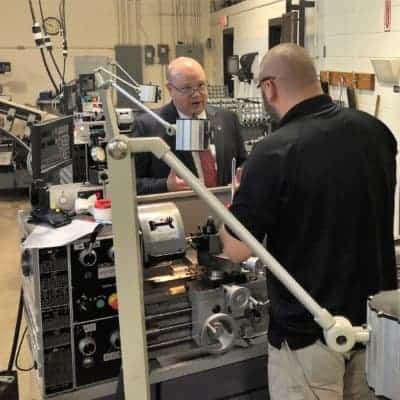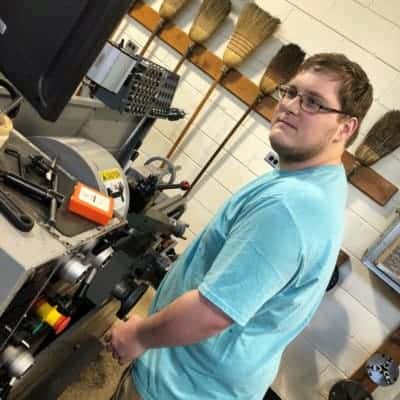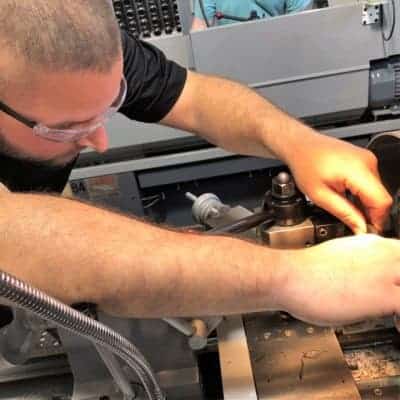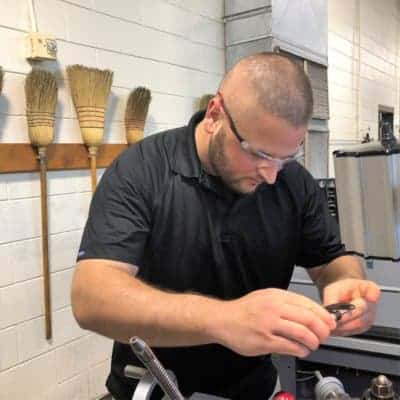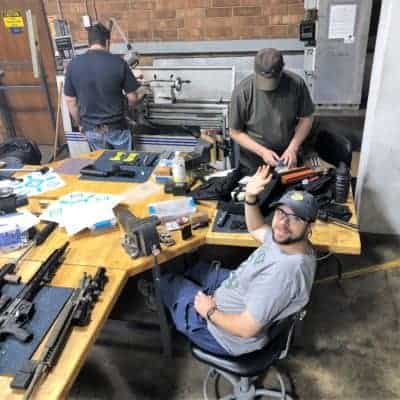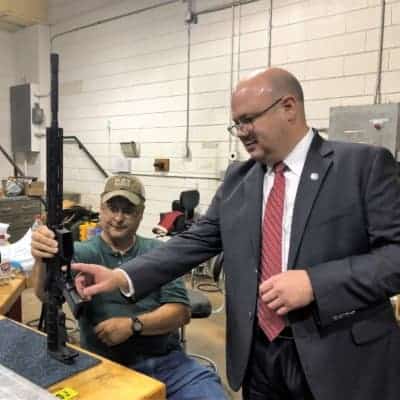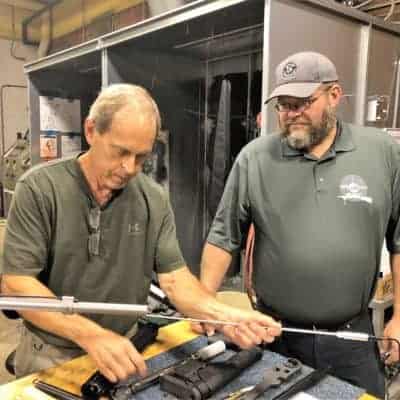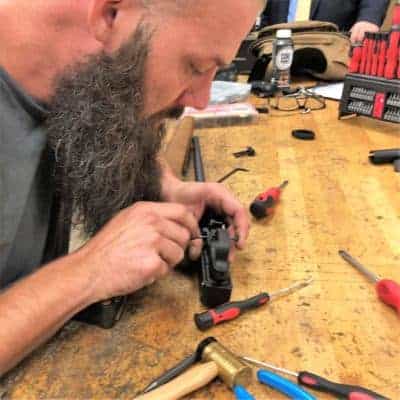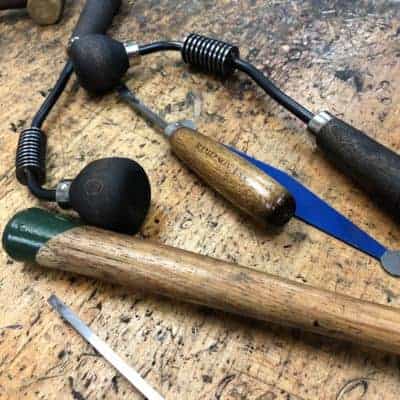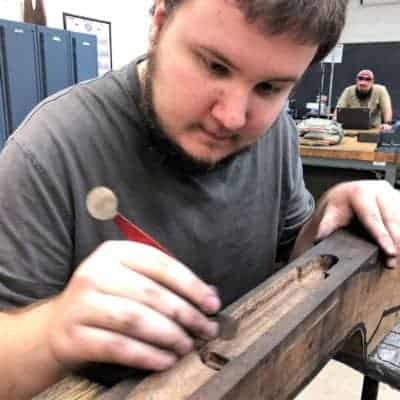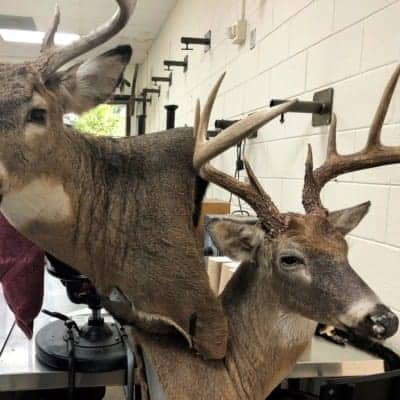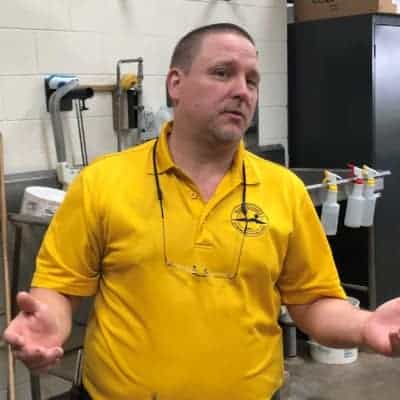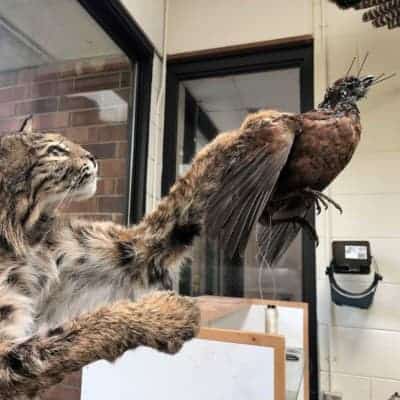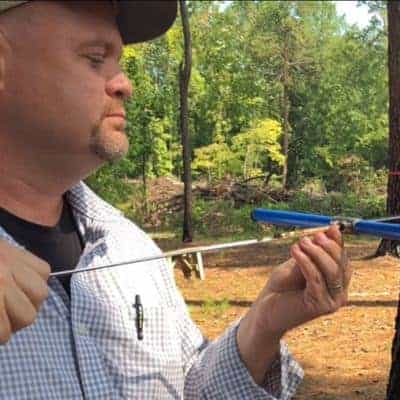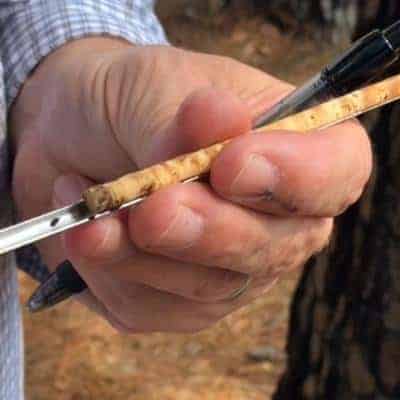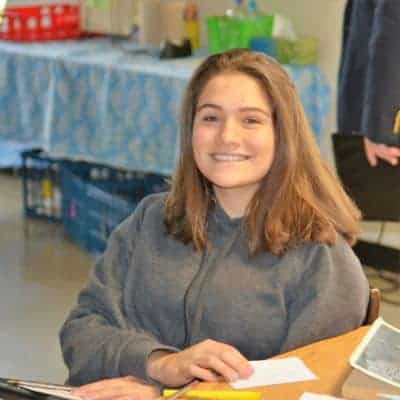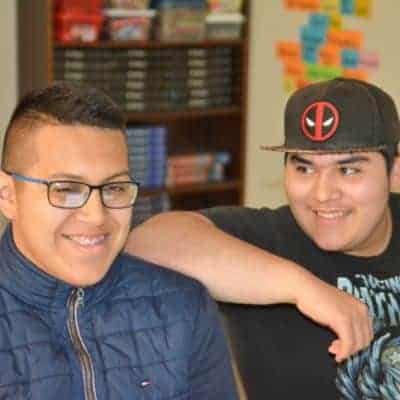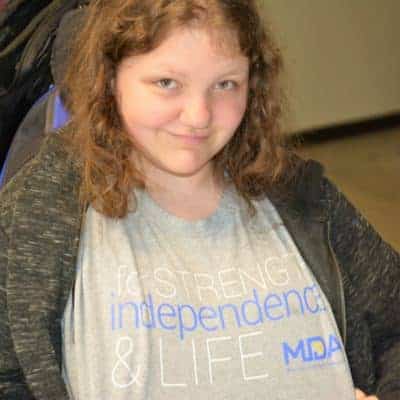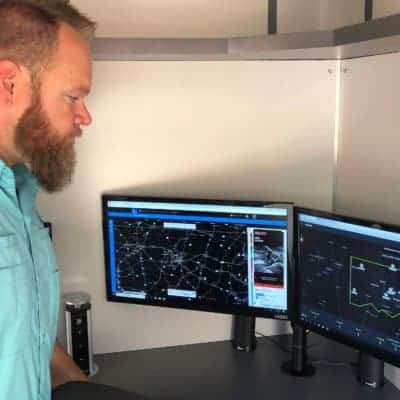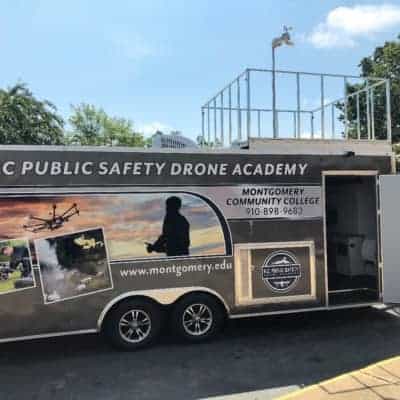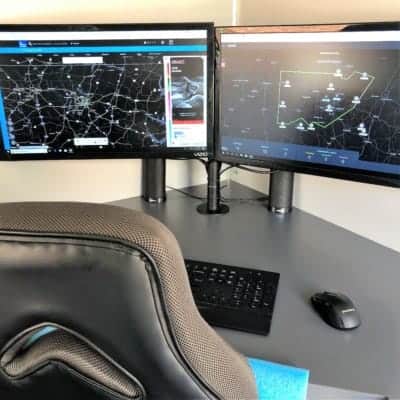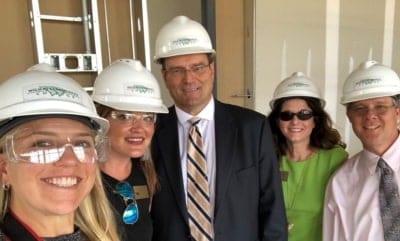“Where is our niche as an institution?”
Dr. Chad Bledsoe, the president of Montgomery Community College (MCC), posed this question almost as soon as I arrived. As I wandered around the campus, community leaders, the MCC leadership team, instructors, and students focused my attention on the role of this community college, not just locally, but in our state and in our nation.
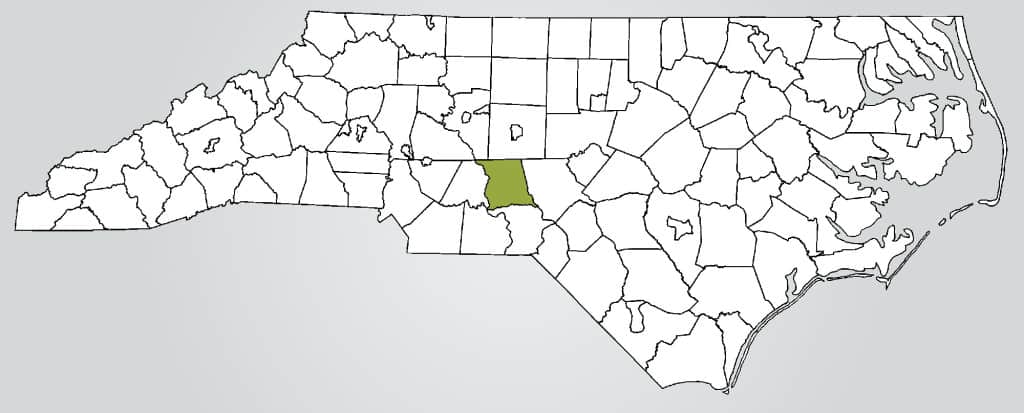
Montgomery Community College, located in Troy, was founded in 1967. “This college is very important to the community,” says Claudia Bulthuis, the chair of the MCC Board of Trustees.
Montgomery County, all 502 square miles of it, is rural and situated in our beautiful Uwharrie National Forest. The motto of the county is “The Golden Opportunity,” and about 27,000 people call the county home.
Local business owners Ray and Dana Dawson see the college and especially the small business center at MCC as a partner. “When we bought a building, they helped us figure out what to do with it. We came up with a vision and turned it into action.” Students that are homeschooled, they note, benefit from dual enrollment at MCC and the ability to take college classes.
Gelynda Capel, chair of the board of trustees at MCC for 20 years, says, “This is a great school — friendly, welcoming. We offer a lot of things that excite people. We are all like a family.”
There is this collective chorus about the upside of being small — a smaller community college in a smaller county. “You can really get things done and make things happen,” Bulthuis follows up.
I’ve been collecting pottery from across North Carolina since law school, and so I was more than a little bit excited to visit MCC on the #Awake58 blitz. But before my visit, I did not know the scope of offerings at MCC, including bladesmithing, gunsmithing, taxidermy, and forestry. I also did not know that the reach of each of these programs extends way beyond Montgomery County.
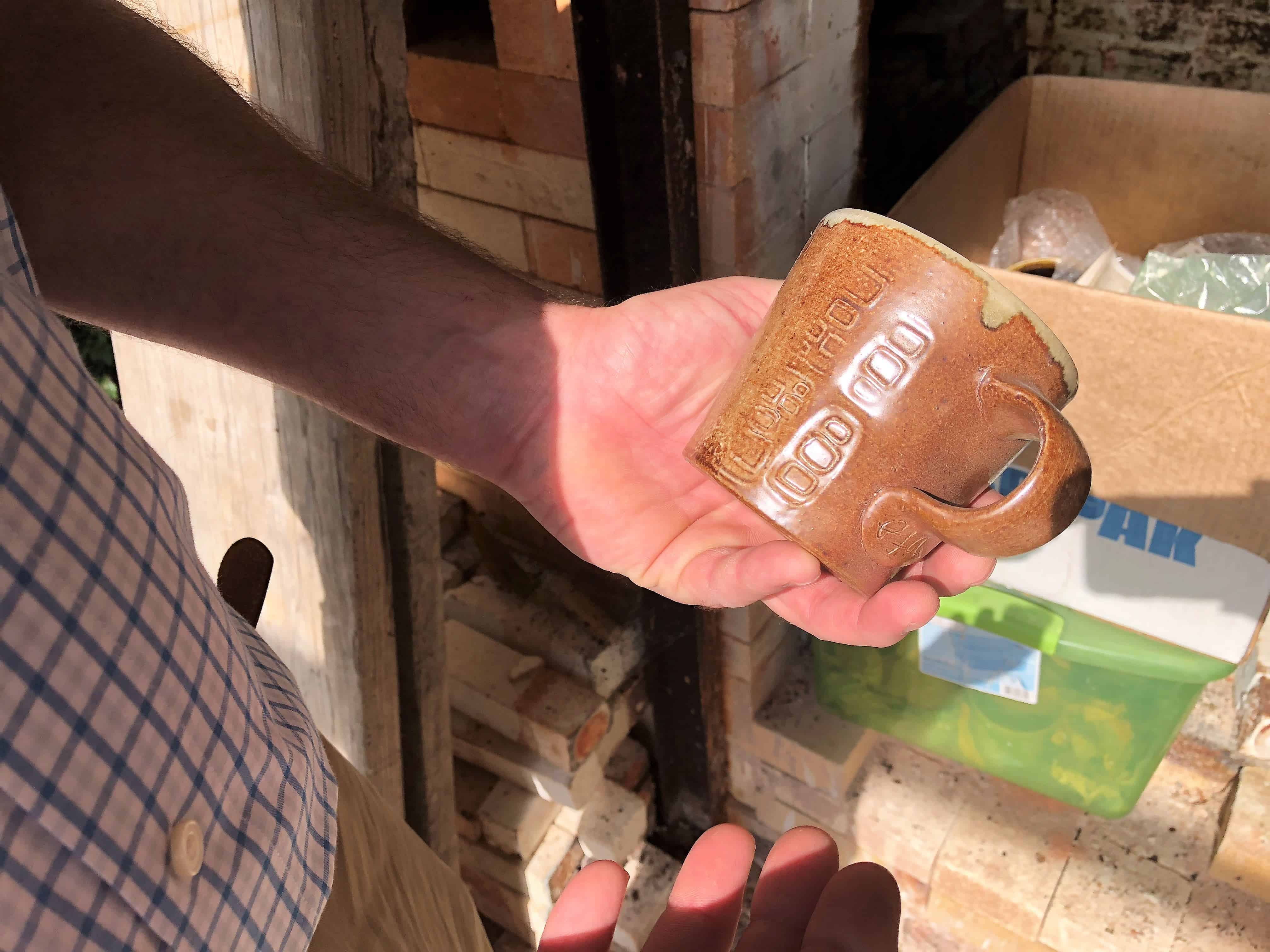
“I think craftsman are probably some of the most undersung supporters of our economy,” says Josh Floyd, the Director of Heritage Crafts at Montgomery Community College.
Floyd says the MCC facilities and talent rival the best in the state and across the nation. Check out this video of MCC’s claymaking facility.
At MCC, there is not one kiln. There are many kilns. Inside and outside. There is state-of-the-art safety equipment. Local students and artists can be found in the studio. And the pottery is stunning.
Floyd says, “It’s a very open place to come and work and push your work forward.” He continues, “We have people who have never touched clay before to people who have galleries and are business owners that are coming here to take classes, as well as instructors from other colleges…”
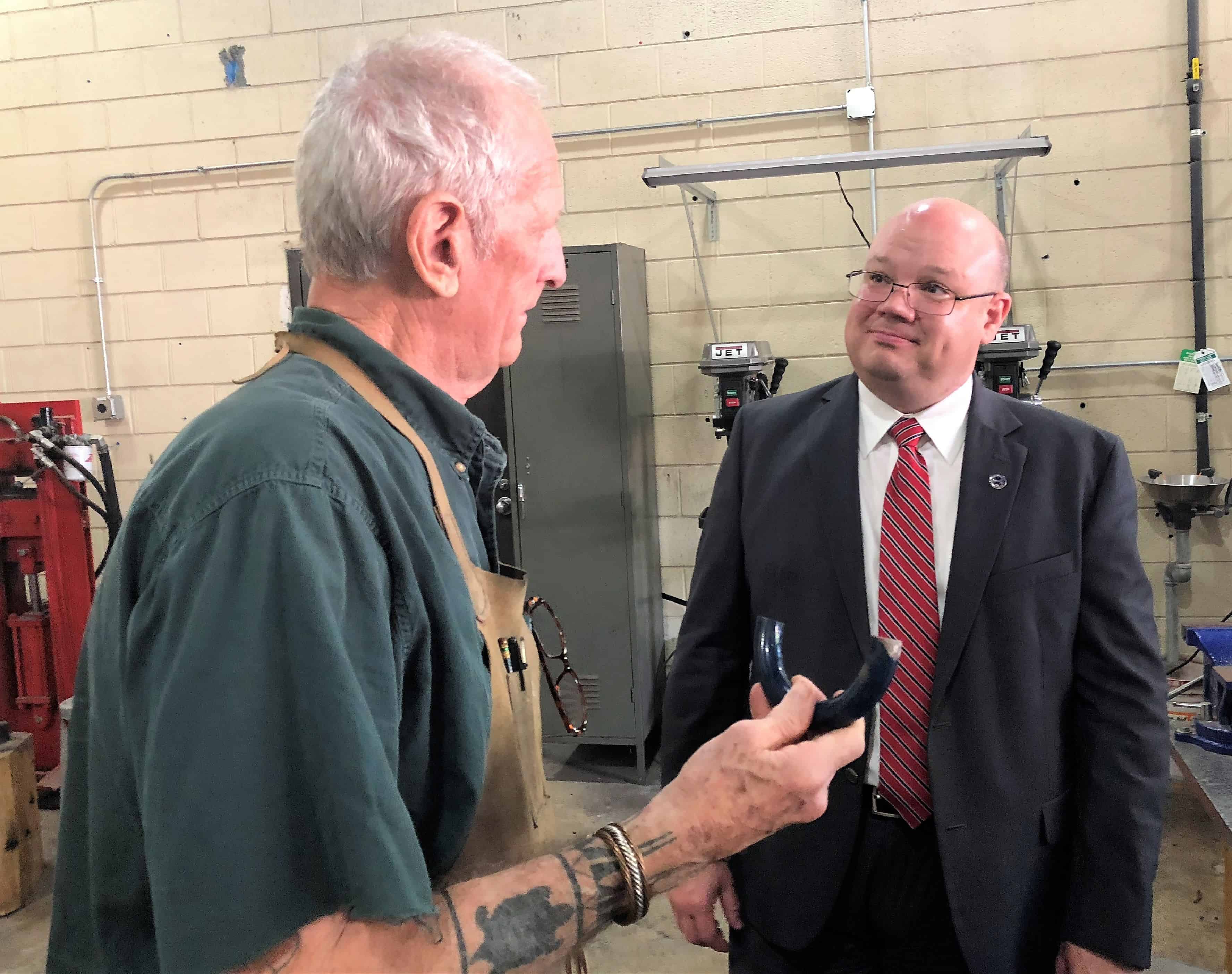
MCC’s knifemaking classes are sanctioned by the North Carolina Custom Knifemakers Guild, and students can take everything from Intro to Bladesmithing to Advanced Blacksmithing and Forging to Tanto Knives. Many classes include the materials for one knife, and I learned from Bill Bisher how to tell if the knife you make is a “good” knife.
https://twitter.com/Mebane_Rash/status/1040692685210836992
Floyd’s heritage crafts program, which also includes woodworking, ensures the inter-generational transfer of knowledge, preserving the time-honored cultural traditions of our state.
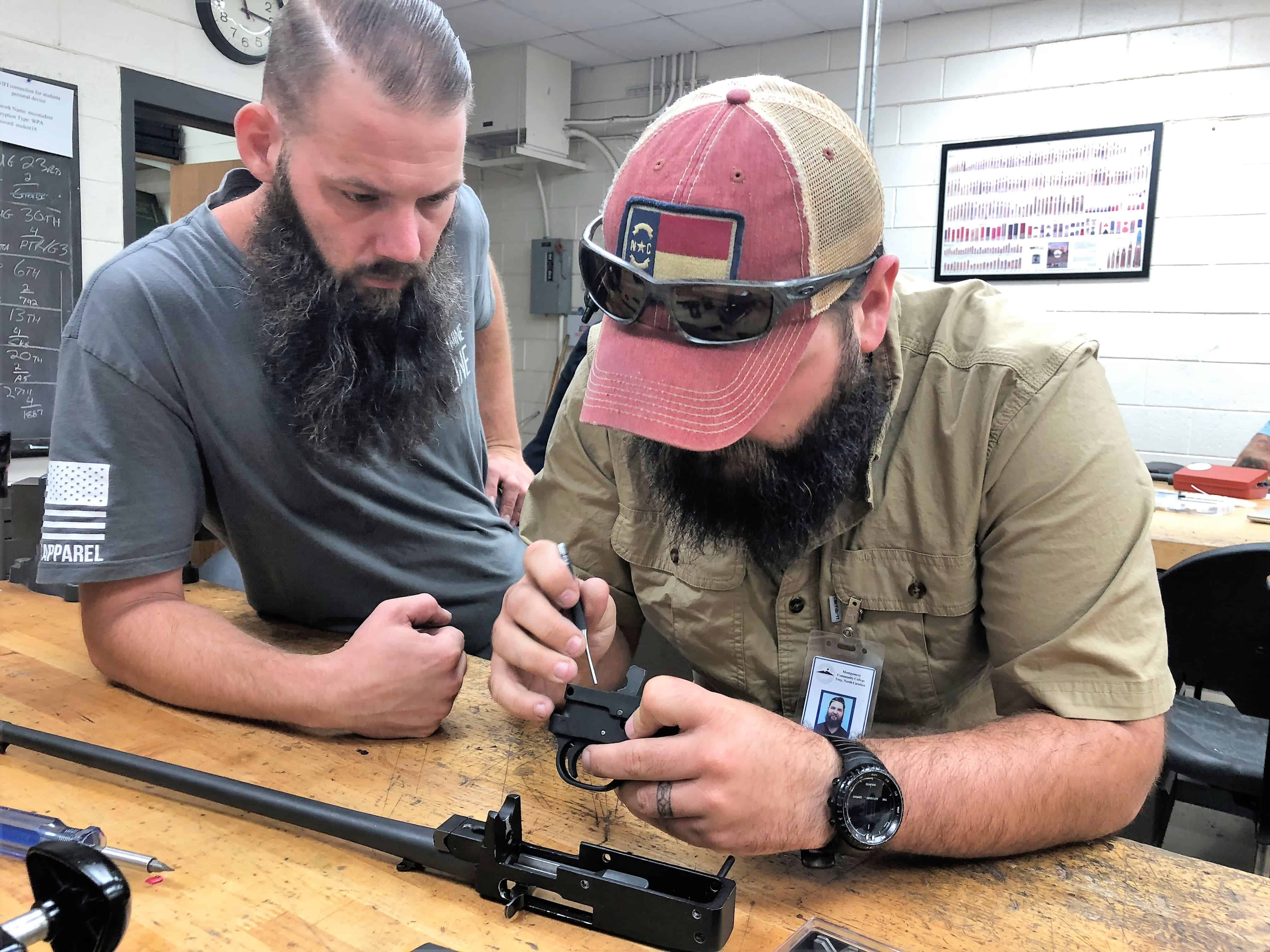
“If I am going to go somewhere for a week, it’s hunting, fishing, or Montgomery Community College,” says Ted Sanders, who travels from Iowa to take classes here each summer. “This is one of the best gunsmithing schools in the country.”
Director of Gunsmithing Mark Dye says Sanders, “is one of the reasons I keep coming back here. I love this school so much.” Sanders loves MCC so much that he donates $5,000 for a merit scholarship for a young gunsmither.
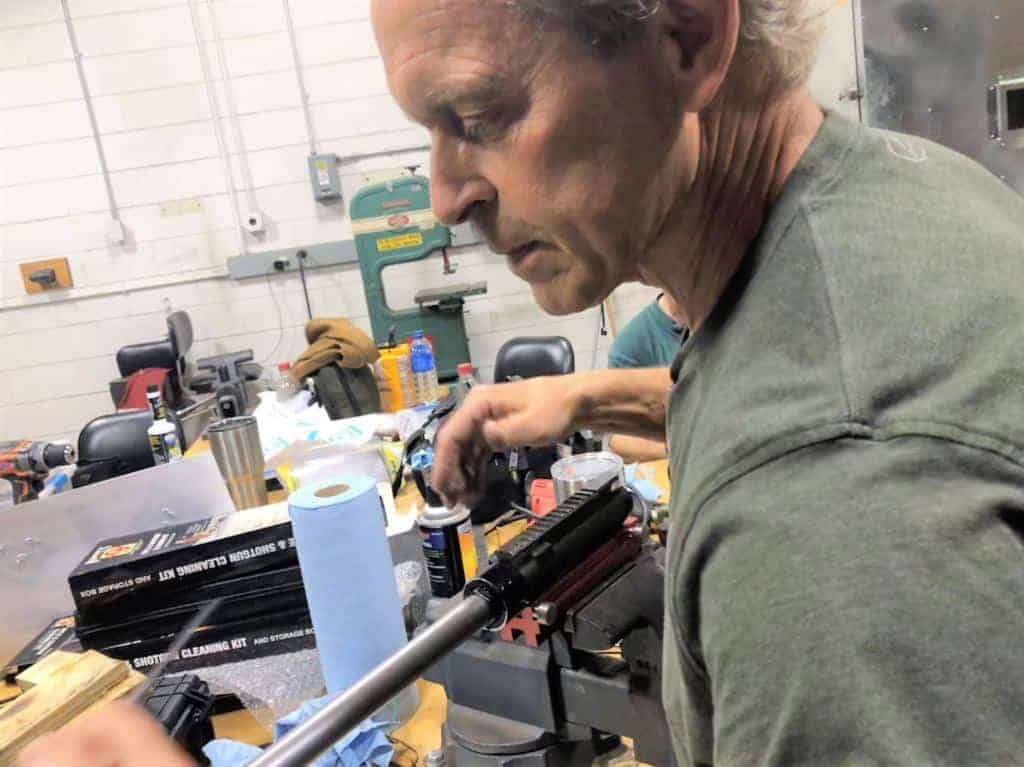
In this video, we see students taking a machine shop class to learn skills that they will later use to work on firearms.
According to MCC’s website, “Montgomery Community College is one of four schools in the nation to offer NRA approved, affiliated short-term gunsmithing courses.” Dye says it is the largest gunsmithing program in the United States, and 45 students are admitted each year.
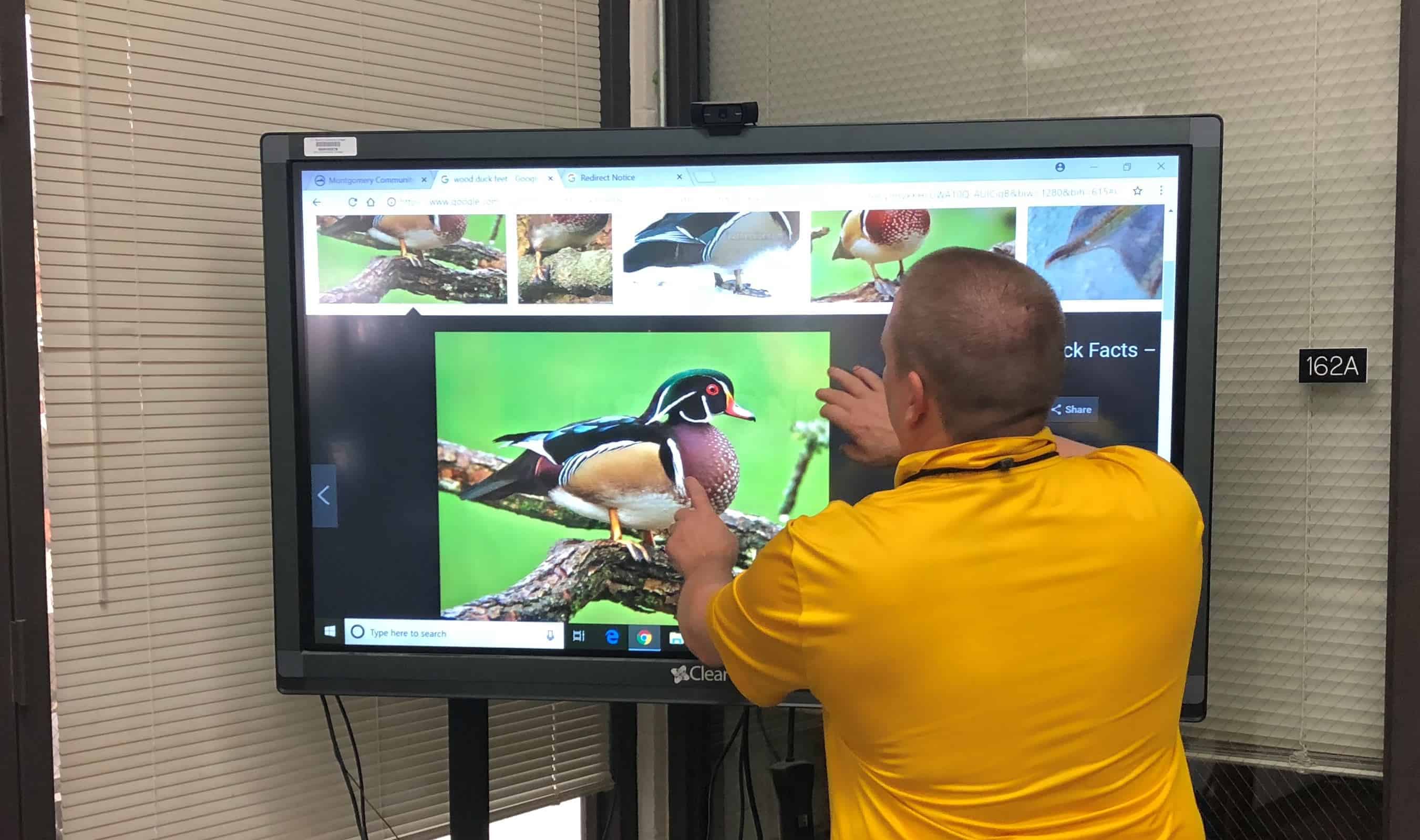
Andy Speer, the chair of the taxidermy department at MCC, says this is the last taxidermy program in North Carolina. He “tries to get some more students for the college,” when he is out across the state teaching taxidermy.
According to MCC’s website, “The Taxidermy curriculum is designed to prepare the student to develop skills while teaching preservation of birds, fish, game heads and mammals … The Taxidermy curriculum focuses on a variety of high-end techniques to achieve the most professional results including: water-pressure fleshing, wet tanning, soft tanning, hand-forming, and artistic natural habitat presentation … The Taxidermy studio provides 1,951 square feet of laboratory and classroom space. Learning takes place in a large, naturally-lit studio with generous student work areas complete with individual lighting and storage.”
Local school students visit MCC to learn about taxidermy. Check out this thank you note from a local student.
From taxes to taxidermy in his Elvis voice, this might be the funniest thank you note I have come across in my travels. #loveNC #Awake58 @MontgomeryCC @EducationNC pic.twitter.com/8ApybmHPlE
— Mebane Rash (@Mebane_Rash) September 14, 2018
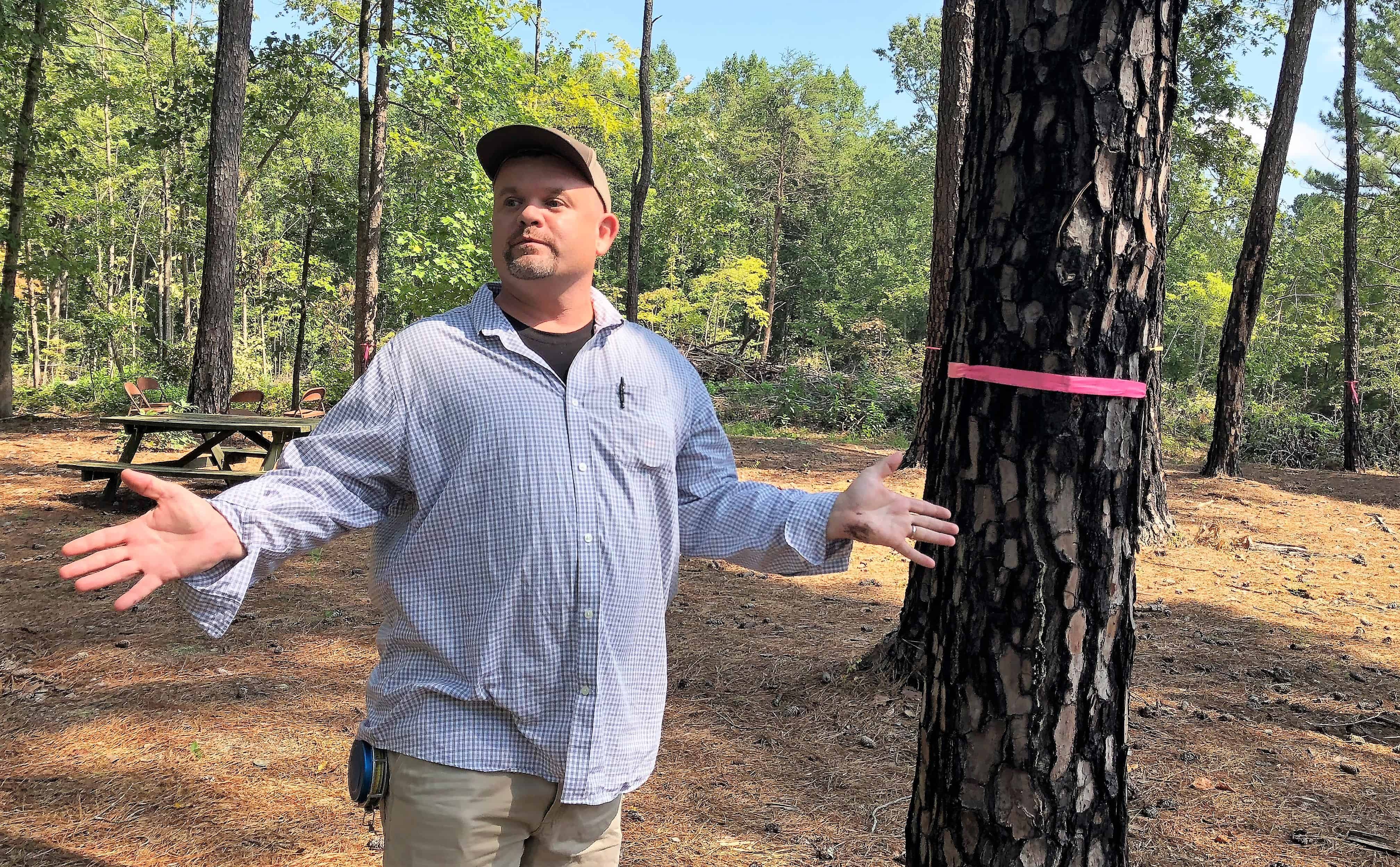
Erick Lamb retired from the United States Army, and found a good fit, he says, here at MCC. In his second year of the forestry program, he walks me through how to check the health of a tree by seeing how fast it is growing.
Lamb pulls out a core sample from the tree so we can see the growth rings. The wider, lighter rings are the spring growth, and narrower, darker rings are the summertime growth. A lighter and darker ring together count for a year of growth. Students also learn from this exercise whether there is disease or it is time to harvest a tree.
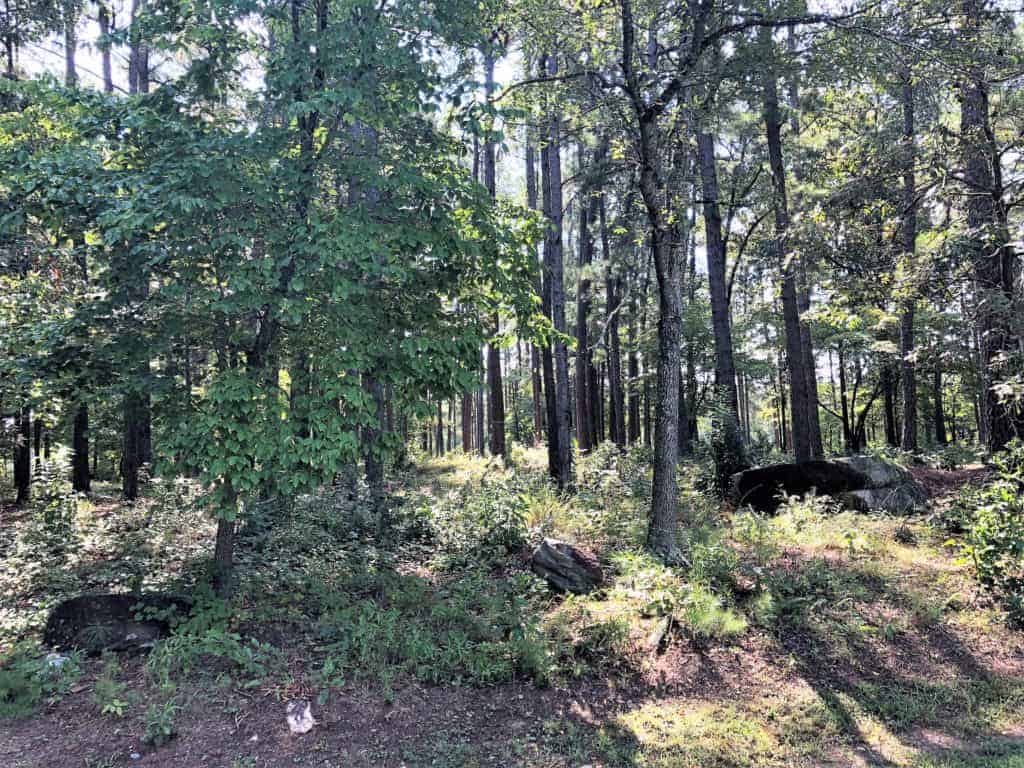
As we walk past this forest, Dr. Bledsoe reminds me that half of the land in this county is a national forest. The forest is a laboratory, an outdoor classroom.
There are other exciting things going on at MCC…
The Joseph Blair Career and Technical Education Center is under construction. Jim Matheny, a county commissioner, says to stimulate growth and economic development “the thing we needed to invest in most is education.” The ideal solution, Matheny continues, is this center which will house a high school and a state of the art technical center all on the campus of MCC. The footprint of the center is massive.
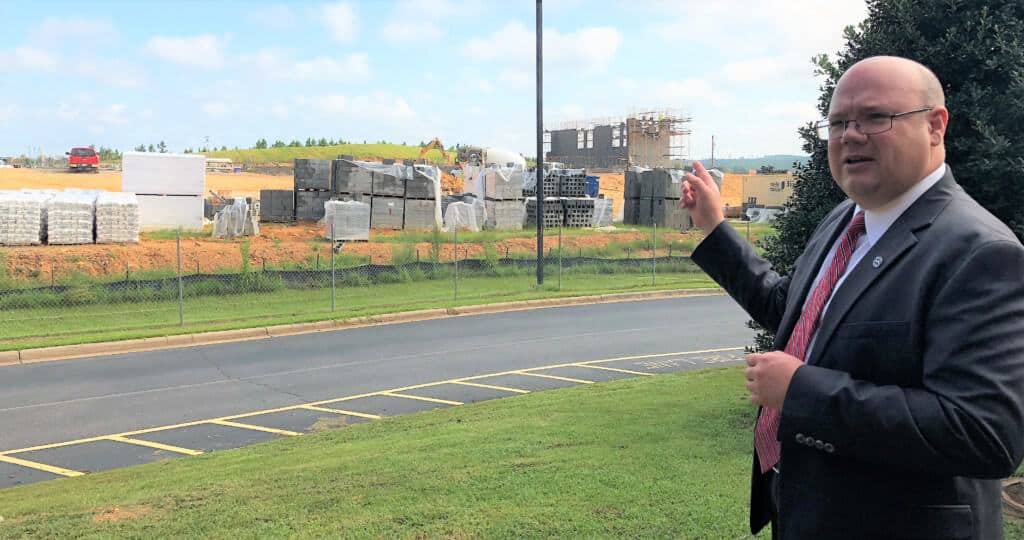
An early college serves 181 students in the 9th, 10th, and 11th grades led by a principal that is beloved, Dr. Heather Seawell.
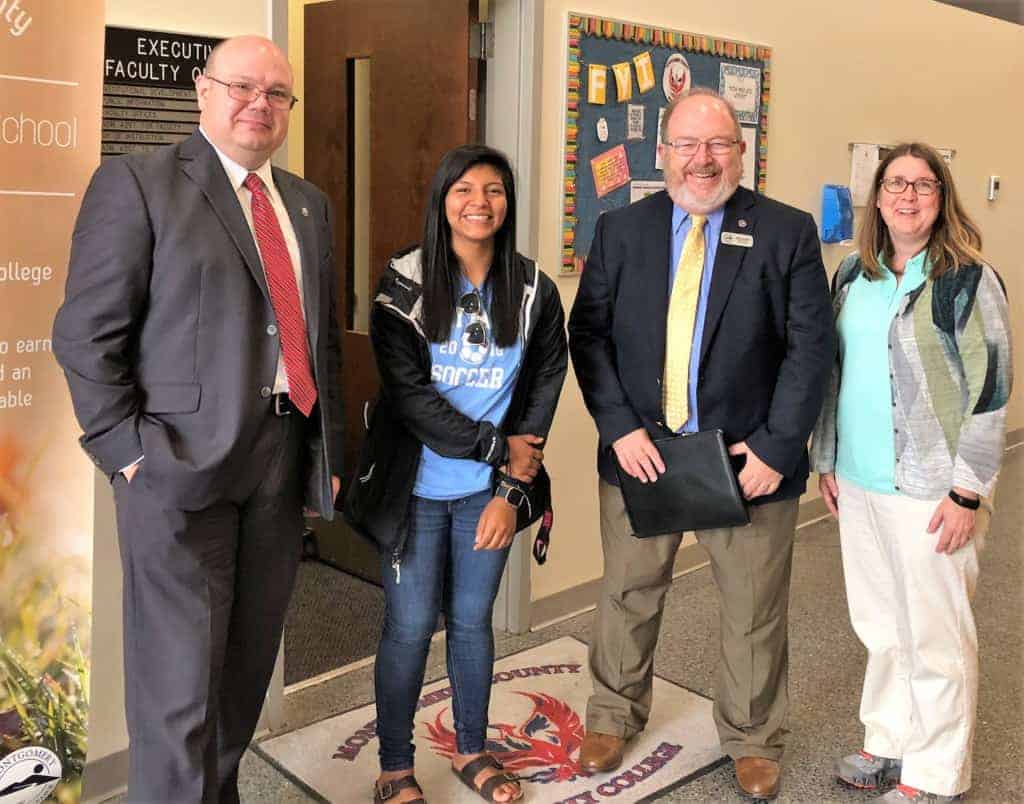
MCC houses the NC Public Safety Drone Academy, led by the Director of Health and Public Safety Riley Beaman. This brand new unmanned aerial vehicles (UAV) command center includes a weather station and an observation deck. MCC assisted law enforcement with the Silent Sam protests in Chapel Hill and also is piloting the delivery of medical supplies in the Triangle and eastern North Carolina.
And philanthropists are investing in MCC.
In 2015, @ncLEAFchief @NCgoldenLEAF invested $400k to expand these classrooms @MontgomeryCC. Without these dollars, the bladesmithing program would not exist and the waitlist for gunsmithing would be 3 years. pic.twitter.com/DcuccUuzRg
— Mebane Rash (@Mebane_Rash) August 31, 2018
In 2018, @DE_AmyS @DukeEnergy invested $200,000 in @MontgomeryCC to connect students with apprenticeship opportunities for adult workers in manufacturing. #Awake58 @EducationNC pic.twitter.com/elmdx32CJm
— Mebane Rash (@Mebane_Rash) August 31, 2018
Dr. Bledsoe was with me every step of the way during my visit, but he allowed me to spend most of my time talking with students and instructors. When I checked in with him at the end of my visit, Bledsoe said, “I’m not the important one. They are.”
Thank you.
